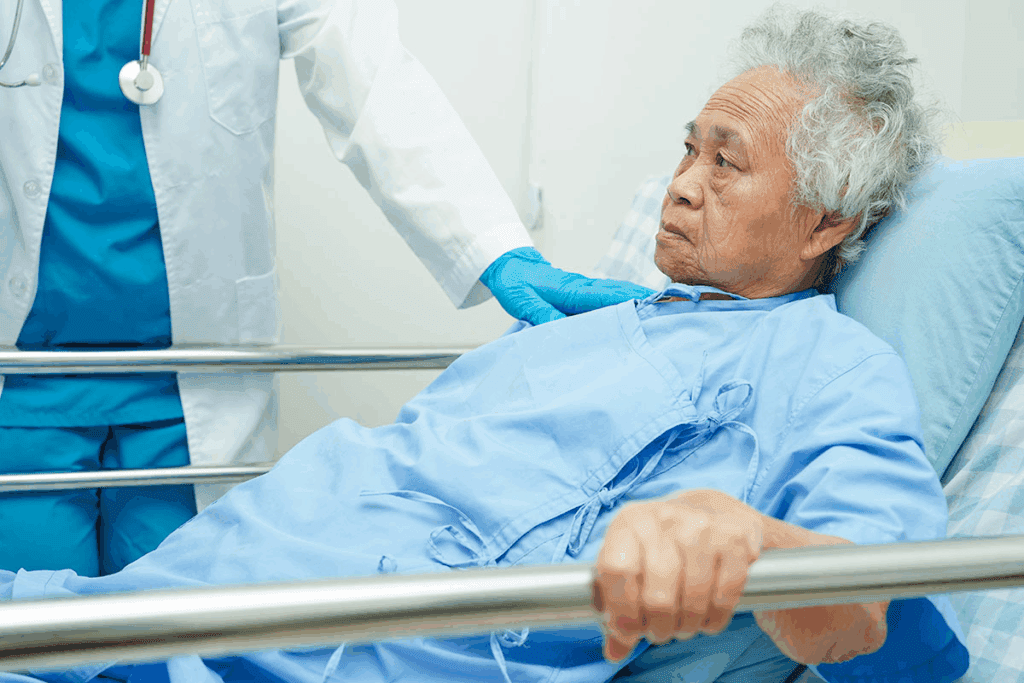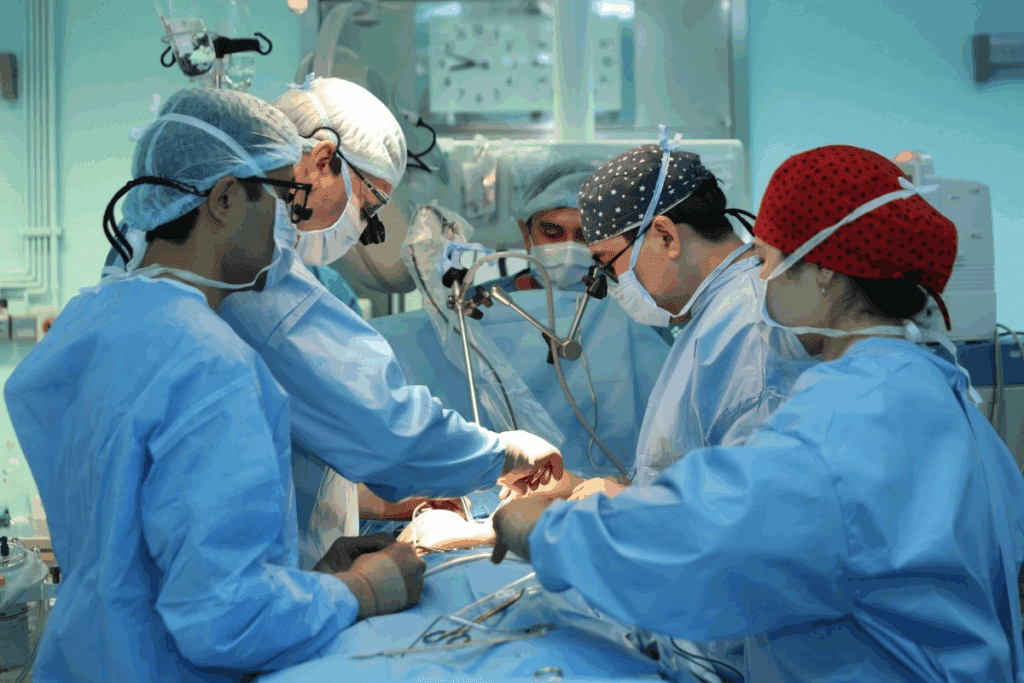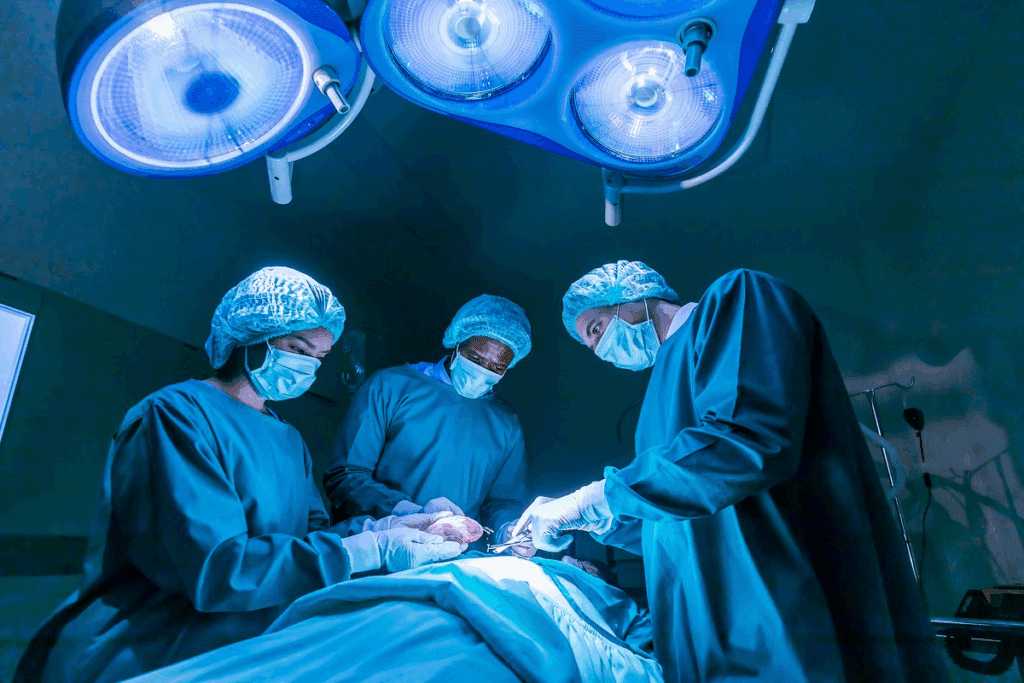Last Updated on November 27, 2025 by Bilal Hasdemir

Having heart surgery is a big deal. It changes a person’s life in many ways. Studies show that patients face both tough times and victories during their recovery process. Open heart surgery recovery is a journey. Find out if you can return to your positive, “normal” life and what to happily expect post-operation.
The path to getting better after heart surgery is filled with changes. Knowing what to expect can help patients get ready for what’s ahead. It also helps them make smart choices about their care.

Heart surgery is a big change that affects patients in many ways. It impacts their physical health and their emotions. This major surgery can deeply change a patient’s life during recovery.
Right after heart surgery, patients often feel pain, discomfort, and tiredness. These feelings can be hard to deal with. They can really affect a patient’s life in the early recovery days.
The emotional side of heart surgery is very important. Patients might feel many emotions, like anxiety, depression, relief, and gratitude.
Many patients feel depression and anxiety after surgery. It’s thought that up to half of patients deal with cardiac depression.
These feelings come from many things. Surgery stress, health changes, and recovery challenges play a big part. Staying emotionally healthy, setting goals, and being realistic can help recovery.
Managing emotional responses well is key to a good recovery. Knowing the emotional effects of heart surgery helps patients prepare for what’s ahead.

Recovering from open heart surgery is a journey with many stages. Each stage has its own challenges and milestones. Knowing the timeline helps patients understand what to expect and how to recover well.
The journey starts in the Intensive Care Unit (ICU). Here, patients are watched closely for any issues. The ICU can be scary, but knowing what to expect helps ease worries. Patients usually stay in the ICU for 1-2 days, slowly getting off life-supporting machines.
After the ICU, patients move to a regular hospital room. This phase focuses on getting stronger, managing pain, and watching for complications. The hospital stay is about 5-7 days, preparing patients for going home.
At home, patients start the early recovery phase, lasting from weeks 2 to 6. They are advised to start walking and increase activity slowly. It’s important to manage pain and watch the incision for infection signs.
After the first six weeks, patients enter the extended recovery phase. This can last several months. They continue to get stronger through a rehabilitation program. They also start to do normal activities again, but with caution.
The long-term recovery phase goes beyond six months. Most patients see big improvements. But, some may keep getting better for up to a year or more. Keeping a healthy lifestyle, including a good diet and exercise, is key for long-term recovery.
| Recovery Stage | Timeline | Key Activities |
| Hospital Recovery | First Week | ICU care, gradual mobilization |
| Early Home Recovery | Weeks 2-6 | Walking program, pain management |
| Extended Recovery | Months 2-6 | Rehabilitation program, returning to normal activities |
| Long-Term Recovery | 6+ Months | Maintaining a healthy lifestyle, continued physical improvement |
Managing pain well is key to getting better after heart surgery. Patients often feel pain in different places, like where the surgery was done and other areas affected.
There are different kinds of pain after surgery. These include pain from the cut, muscle pain, and pain that feels like it’s coming from somewhere else. Knowing what kind of pain you have helps in managing it better.
Doctors start with medicine to help with pain. They might give you opioids and other pain relievers. It’s important to take your medicine as told and talk to your doctor about your pain.
There are also ways to feel better without medicine. Breathing exercises, relaxing, and physical therapy can help a lot. These methods can make you feel less pain and help you recover faster.
| Pain Relief Method | Description | Benefits |
| Breathing Exercises | Deep breathing techniques to relax the body | Reduces stress, improves oxygenation |
| Relaxation Techniques | Methods such as meditation and progressive muscle relaxation | Decreases anxiety, promotes relaxation |
| Physical Therapy | Guided exercises to improve mobility and strength | Enhances recovery, reduces stiffness |
Some pain is normal after surgery. But, if the pain is very bad, gets worse, or comes with other symptoms, it might mean there’s a problem. It’s important to watch for these signs.
After heart surgery, patients often struggle with sleeping, breathing, and feeling comfortable. These challenges can really affect their daily life.
Finding a good sleeping position is hard for many. Sleeping on the back with a pillow under the knees can ease chest pain and help sleep better. It’s best to avoid lying on your side or stomach until the incision heals well.
Breathing exercises are key for lung health after surgery. Deep breathing exercises can boost lung function and lower the chance of infections. Doctors usually tell patients to do these exercises often.
It’s important to manage pain at the incision site. Patients can use pain management strategies suggested by their doctors. This might include medicine or cold compresses.
Swelling and fluid buildup are common after surgery. Raising your legs and cutting down on salt can help. Compression stockings are also suggested to improve blood flow and reduce swelling.
Open heart surgery is just the start of a long journey. Knowing the long-term side effects is key to getting better. This surgery can change a person’s body and mind in lasting ways.
After open heart surgery, you might see permanent physical changes. You could have scars, feel different in your chest, or find it harder to do things physically. It’s important to know these changes to live better after surgery.
Many people feel ongoing sensations and discomforts after surgery. These can include:
Chest numbness and sensitivity are common after heart surgery. These feelings can be scary, but they usually get better with time.
Nerve pain, or neuropathic pain, can be hard to deal with. But, there are ways to manage it, like medicine and other therapies.
Open heart surgery can also affect your mind. Some people might have trouble remembering things or feel sad or anxious. It’s important to know about these effects to get the right help.
Knowing about the long-term effects of open heart surgery helps patients on their recovery path. By understanding the physical, mental, and emotional changes, people can get the support they need. This improves their life quality.
For many patients, cardiac rehabilitation is key after heart surgery. It helps them recover, manage symptoms, and improve health. This program includes exercise, education, and support, tailored to each patient’s needs.
Good cardiac rehab programs have several key parts. Exercise training is vital, improving heart health and strength. Education teaches patients about their condition and how to live healthily. Support from doctors, family, and friends is also important for emotional recovery.
Cardiac rehab greatly improves outcomes for heart surgery patients. It boosts heart health, reduces symptoms, and promotes healthy living. Studies show it lowers hospital stays and improves survival rates.
Setting realistic goals is key in cardiac rehab. Patients work with their team to set goals like improving exercise or managing weight. Achieving these goals boosts motivation and success.
Walking is a simple yet powerful exercise after heart surgery. It improves circulation, strengthens the heart, and aids recovery. Patients start with short walks, increasing distance and intensity as they get stronger. Walking also helps mental health by reducing stress and improving mood.
Heart surgery starts a recovery journey. Patients slowly get back to their usual activities. Each person’s recovery is different, but there are common steps to follow.
Driving after heart surgery needs careful thought. Doctors usually say wait 4-6 weeks before driving. This helps the sternum heal and lowers the risk of problems. Before driving, you must be able to do emergency stops safely.
Going back to work depends on your job, surgery, and how fast you recover. Many start with part-time work or easier tasks. Social activities can also be slowly added back, but avoid too much.
Exercise is key in recovering from heart surgery. Start with easy activities like walking. Then, move to harder exercises with a doctor’s help or in a cardiac rehab program.
There are important rules to follow after open heart surgery. They help your body heal right and avoid problems.
Don’t lift heavy things, like 5-10 pounds, for a few weeks. This keeps your chest muscles relaxed and helps the sternum heal.
Stay away from hard exercise, bending, or heavy lifting early on. Also, be careful with sudden movements or jolts.
By following these tips and your doctor’s advice, you can safely get back to your daily life. Enjoy a healthier, more active life after heart surgery.
Recovery from heart surgery affects more than just the body. It also impacts your emotions and mind. Going through major cardiac surgery can be very tough, leading to different emotional reactions.
Many patients feel sad and worried after heart surgery. These feelings come from the surgery’s stress, changes in how they feel physically, or worries about the future. It’s important to see these feelings as a normal part of getting better.
Some people might notice changes in how they think, like memory problems or trouble focusing. These issues are usually short-term but can be hard to deal with.
Feeling angry or having mood swings is common during recovery. These feelings can come from being frustrated with physical limits or the recovery process itself.
There are ways to help with emotional healing, including:
| Strategy | Benefit |
| Meditation/Relaxation | Reduces stress and anxiety |
| Support Groups | Provides community and understanding |
| Counseling/Therapy | Addresses emotional challenges |
Getting better emotionally and mentally is key to healing after heart surgery. By facing these challenges and using strategies for emotional healing, patients can improve their overall well-being and life quality.
Supporting a loved one after heart surgery needs patience and understanding. The recovery is long and can be hard on everyone involved. It’s not just the patient who feels the strain.
Creating a safe and comfy space is key. Help with daily tasks like bathing and managing meds. Also, encourage gentle movement to avoid blood clots.
Emotional support is as important as physical care. Let your loved one share their feelings. Listen actively and validate their emotions to help their mental health.
Make your home recovery-friendly. Rearrange spaces to reduce strain and keep important things within reach.
Knowing when to ask for more help is vital. This could mean hiring caregivers or joining support groups. Below is a table showing when you might need extra help.
| Signs | Indicators | Action |
| Increased Pain | Patient complains of increased or unmanaged pain | Consult healthcare provider for pain management |
| Depression or Anxiety | Noticeable changes in mood or behavior | Seek professional mental health support |
| Difficulty with Daily Activities | Patient struggles with basic self-care or mobility | Consider hiring a professional caregiver |
Offering both practical and emotional support is vital. Loved ones can greatly aid in recovery, leading to a better outcome.
Life after open heart surgery can be tough, but with the right support, patients can do well. Recovery is not just about getting better physically. It also means making emotional and psychological changes.
The path to getting better is long and full of different challenges. Patients must deal with pain, learn to do daily tasks again, and be patient. Cardiac rehab is key, helping patients get stronger and more confident.
Accepting your new normal after heart surgery is a big step. It means understanding the changes surgery brings and finding ways to adjust. With help from doctors, family, and friends, patients can live a fulfilling life post-surgery.
Every person’s recovery is unique. Focusing on a healthy lifestyle, emotional health, and a supportive network can help you succeed in your recovery.
Recovery from open heart surgery takes about 6-12 weeks. Some people might need up to 6 months to get back to normal.
Long-term effects can include physical changes and ongoing discomforts. You might also face cognitive or psychological impacts like depression and memory issues.
To manage pain, try medication and non-pharmaceutical methods like breathing exercises. Alternative therapies can also help. Know when to seek medical help if pain doesn’t improve.
It’s best to avoid sleeping on your side for a few weeks. This helps reduce discomfort and aids in healing.
You can drive again in 4-6 weeks, or as your doctor advises. This ensures you can drive safely.
Cardiac rehabilitation includes exercise, education, and support. It helps patients recover from heart surgery and manage their condition.
Offer practical care and emotional support. Create a supportive home environment. Know when to seek more help if needed.
Yes, avoid heavy lifting and strenuous activities for weeks. Follow guidelines for exercise and physical activity progression.
Yes, it can lead to depression, anxiety, and emotional challenges. The right support and professional help can manage these issues.
Look out for severe pain, difficulty breathing, and fever. Seek immediate medical attention if you experience these symptoms.
Swelling can last weeks to months. Manage it with elevation, compression stockings, and strategies recommended by your healthcare provider.
Many patients fully recover from open heart surgery. Recovery depends on individual health, surgery type, and post-operative care.
Subscribe to our e-newsletter to stay informed about the latest innovations in the world of health and exclusive offers!